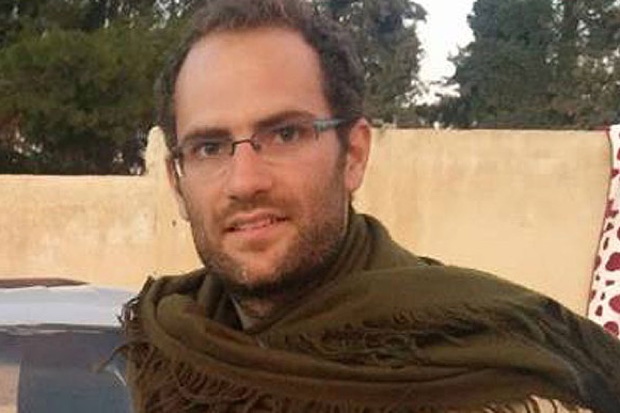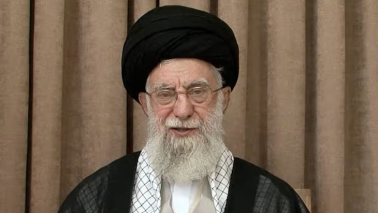Just when you thought the self-important, ban-happy uber-bureaucrats who run student unions couldn’t get any worse, they go and No Platform a guy who fought with the Kurds against Isis. Yes, not content with expunging lads’ mags from campus, crying for the censorship of everyone from Germaine Greer to Dapper Laughs, and wailing about Robin Thicke’s ‘Blurred Lines’ like outraged nuns at a school disco, now they have silenced someone who spent five months facing down the head-choppers of the Islamic State.
Macer Gifford, a former student at University College London (UCL), was due to give a talk at UCL this week on his experiences with the YPG, the fighting units of Syrian Kurdistan who have valiantly stymied the spread of Isis. But the Kurdish Society who invited him was told by Asad Khan, the activities and events officers of UCL’s students’ union, that the talk couldn’t go ahead, because ‘in every conflict there are two sides, and at UCLU we want to avoid taking sides in conflicts’.
It’s true there are two sides in the YPG v Isis conflict. One side has both men and women fighting hard to protect their homeland and people from falling to brutal Islamist rule; the other pushes gay people off buildings, stones adulterers, sets fire to its prisoners of war, and mows down anyone who stands in the way of the growth of its creepy Caliphate. If you can’t ‘take sides’ in a conflict like that, then your moral compass is in serious need of repair.
Khan says UCL management sought advice from the cops on whether to let Gifford speak, but they didn’t hear anything back, so in order to ‘stay on the side of caution’ UCLU decided to refuse permission for the event. So the talk could have gone ahead, but controversy-allergic, morally-lost student-union officials squashed it in the name of ‘safety’. They were apparently concerned that having ‘a person speaking about their experiences fighting in Syria could lead to others going and fighting in the conflict’.
Wait. What? What the union is essentially saying here is that Gifford might have inspired other people to take up arms against Isis and that would apparently be a bad thing. Let’s not mince words: this is censorship designed to protect the Islamic State. To protect it both from criticism (the conflict is ‘far too complex to understand in black and white’, said Khan) and from attack (the talk could lead to ‘others going and fighting in the conflict’). It’s bad enough when students’ unions assume the Victorian-era mantle of having to protect women from rough words or black students from racism, but now they’re effectively defending the Islamic State from public rebuke and critique. Student-union bureaucrats offer moral succour to Isis.
They have form on this issue. Last year, the National Union of Students rejected a motion condemning Isis. They said the motion was ‘Islamophobic’ and might offend Muslims. But it was NUS’s rejection of the motion that was offensive to Muslims, grotesquely so, since it treated them as an indecipherable blob who all share the same views. The Islamic State is Islamic, and therefore Islamic people will be upset if it’s criticised, right? That’s the bovine thinking of illiberal student officials who have elevated the need to protect people’s sensitivities, or what they paternalistically presume to be their sensitivities, above everything else, including freedom of speech.
And now they seek to protect the sensitivities of the Islamic State. They’re acting like PR men for Isis, shooting down motions and talks that might stir up fury against it. This reveals a searing truth about censorship: that no matter how much it is justified as a means of protecting the powerless from ‘harm’, it is always really a tool for protecting the powerful from criticism. So in the past, public-order legislation designed to protect people from being offended by the blackshirts was later used to shut down demonstrations against racism; Leveson’s backers pose as warriors for ordinary people hurt by the papers but actually they boost the clout of celebs and politicians against the press; and student No Platforming aimed at protecting allegedly vulnerable Muslim students from offence actually protects Isis from attack.
How far student politics has fallen, from fighting against The Man and demanding greater liberty in the 1960s to cravenly clamping down on criticism of the most illiberal, backward organisation on Earth in 2015.







Comments